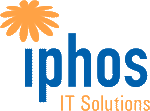SLA ITIL
Service level agreements (SLA) are the underlying building blocks of service level management using ITIL. A service level agreement (SLA) describes the level of service a customer expects from his or her IT provider, i.e., the service level targets agreed between the parties. SLAs specify service level goals and are used to set service level targets for customers. A service level agreement (SLA) may also be defined in relation to a specific service, i.e., the service that is provided by the service provider, rather than by an internal group.
Example services provided to the customer are known as:
- event management,
- desired outcomes,
- enterprise-level objectives,
- and service levels, each with their own requirements and priorities;
An SLA may also specify the service level target, i.e., the minimum acceptable service quality that is to be met for a particular order to be fulfilled. Examples for response times of SLA supporting services that are provided by the service provider might be:
- All orders will be processed within one hour
- All orders will be processed within one day
- Daily minimum order response time requirement is 5 hours
- Daily maximum order response time requirement is 50 minutes
A service level agreement
An SLA does not have to be identical in every case, since every SLA is unique. Therefore, different SLAs will serve different functions within an organisation, depending on which aspect of the service being managed by the service provider. For example, an SLA supporting billing services will be used during normal service hours, while weekend or holiday SLAs will be used for special occasions.
Service level agreement (SLA) configuration can also be influenced by the type of service being supported, with fixed SLAs for more specialized services, and multilevel SLAs for general services.
Service level agreement (SLA) vs. service level requirements
A service level requirement (SLR) documents the customer’s requirements, and can also be specified for specific services, and met by a minimum SLR. Service level requirements also specify SLRs for more specialized services, and they are more granular.
- For example, some organisations will be considered almost „maintenance free“ between Friday and Monday, while others will not be maintenance-free, but require an SLA with 99.9% availability and require significantly more frequent service delivery and upgrades.
- For example, service level requirements can be met with a higher percentage for special exceptions like an airport SLR where it will be needed for a minimum SLR of 99.9% required general service, performance, and availability.
Contact us
Contact us if you are interested in our solutions. One of our employees will evaluate your ideas and provide first consulting. After that, we will send you an offer that is optimized for your specific needs.
Phone: +43 1 8698400
Email: office@iphos.com
Company
We are a strong international company – to bring the best IT solutions to you. We provide an outstanding full service in the areas of IT, ITSM, software development and web development for our customers.
IT-Infrastructure
As full service provider and sustainable company, we provide top solutions for maintenance, consulting, networks, Exchange, Linux- & Windows servers, and more.
Software development
State-of-the-Art software development from Vienna: we work on your ideal individual solutions in software, mobile apps, interface- and database development.
Web development
We rethought web development: we offer intranets & extranets, websites, e-commerce platforms, online calculators, newsletter systems and provide classical services like SEO, SEM, and more.

![]() Iphos IT Solutions GmbH
Iphos IT Solutions GmbH
![]() Arndtstrasse 89 / Top 22 1120 Vienna, Austria
Arndtstrasse 89 / Top 22 1120 Vienna, Austria